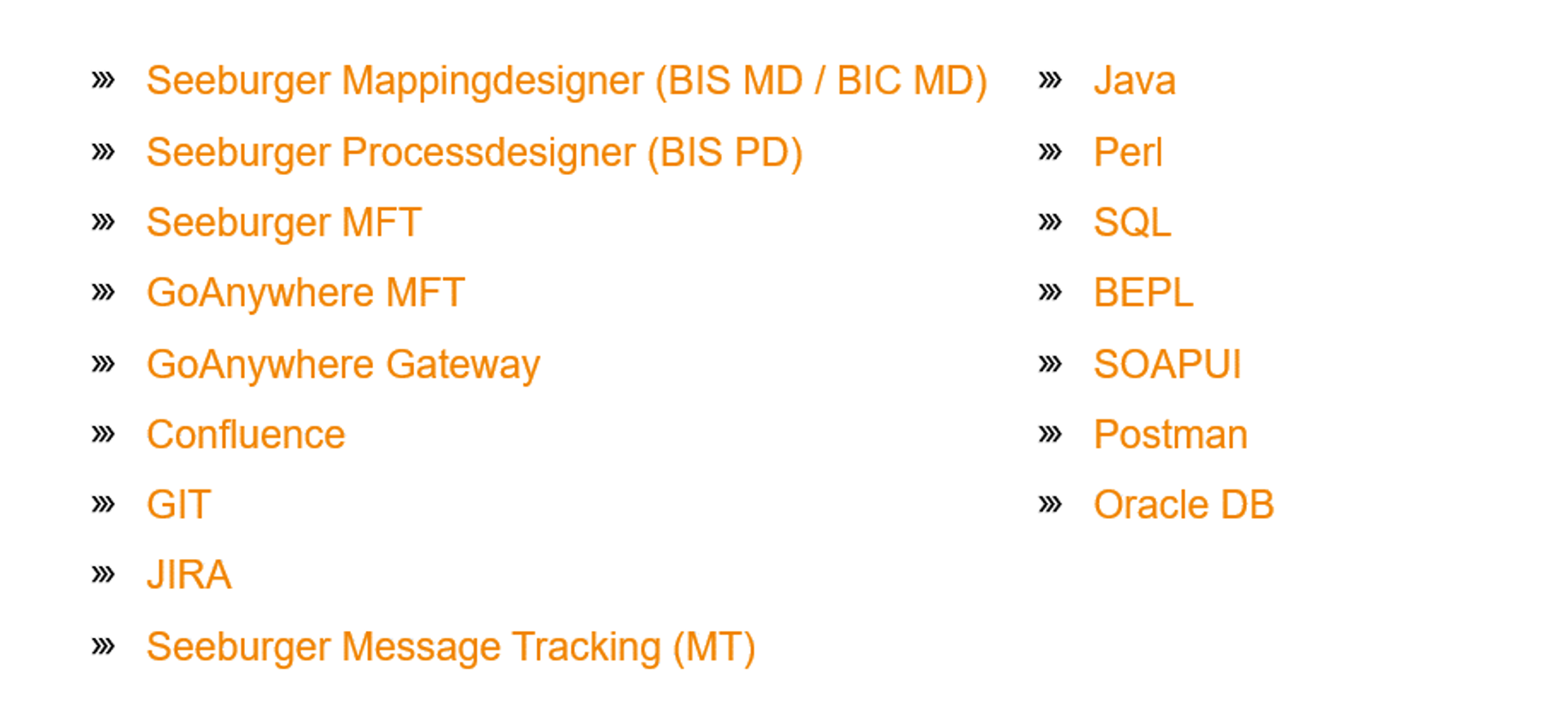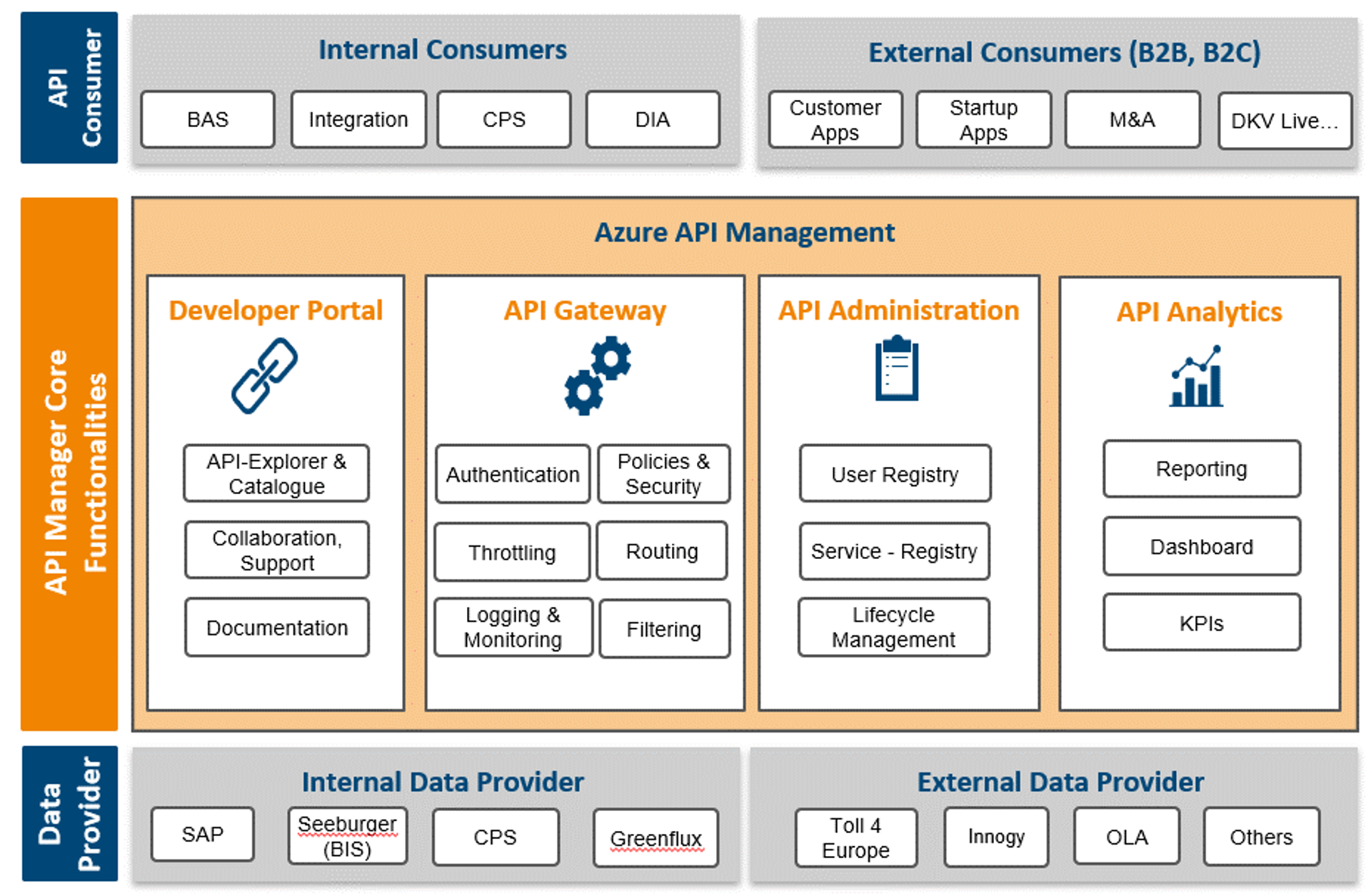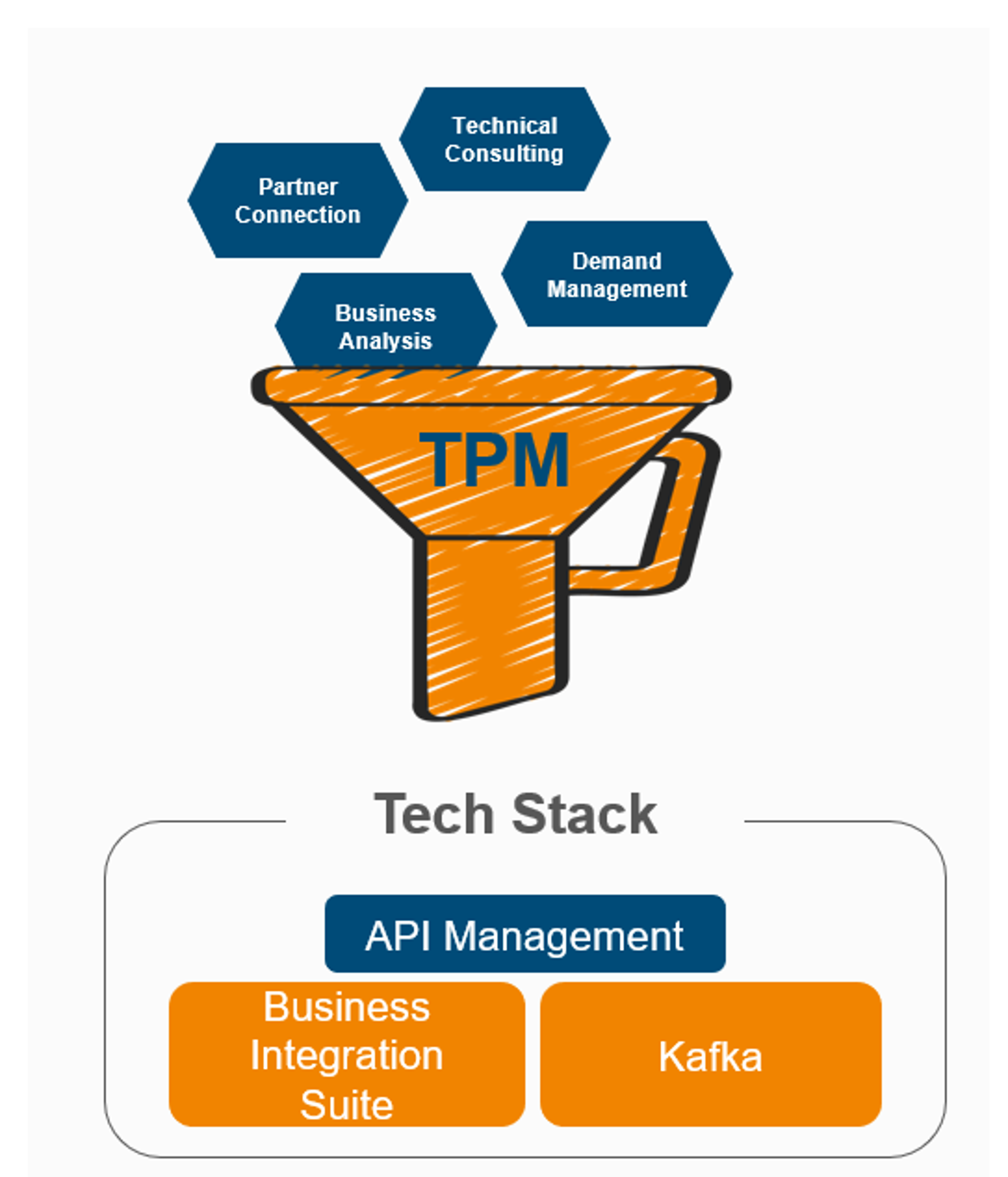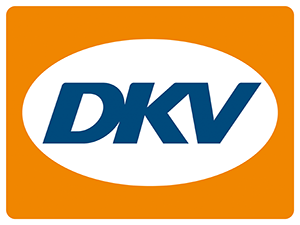Janine Salzenberg: Data Distribution Hub as key to success

Data is the most important commodity for any company in the current digital age, and employing it efficiently and quickly, based on changing requirements, is the main factor behind the success stories of the top companies. The distribution of this data is the hidden key for the success of DKV Mobility. The amount of data created and the need for coordinated transfer to the different backend systems is rapidly growing. Furthermore, a major shift from file based asynchronous data to event-driven and (near) real-time use cases requires the implementation of modern and evolving technologies and highly scalable middleware platforms.
Organizational context
This is why the department of Integration Services within the IT in DKV Mobility was established. The department is split in three main technological pillars:
- Asynchronous (mostly file based) data transfer via our middleware system SEEBURGER BIS
- Data-streaming via our middleware system Confluent Kafka
- A centralized Microsoft Azure application-programming interface (API) management for publishing and managing APIs
Asynchronous data transfer (SEEBURGER BIS)
To meet the needs of DKV Mobility regarding its core products, DKV Mobility has decided to implement a middleware system which has its strength in an asynchronous, mostly file-based data transfer. The Seeburger Business Integration Suite (short BIS) was implemented as a central hub above the other internal backend systems, such as SAP. Right now, over 50 different backend systems and over 10,000 different partners and customers are connected to the BIS. A wide variety of data protocols are provided like REST, SOAP, FTP, SFTP, FTPs, OFTP TCPIP, OFTP TCPIP V2, Mail, PeSIT, IDOC etc. The team that supports this product has a widespread knowledge in the following tech stack:

Some might think that standard electronic-data interchange (EDI) is boring, but EDI proves you wrong: The market is developing rapidly, and technology is changing so fast that new standards and technology are constantly being developed and must be integrated. Current challenges are e.g. the infrastructural-cloud migration and the SAP S/4HANA migration. These two are huge projects which will start shortly and will keep us busy for the upcoming years.
Data Streaming (KAFKA)
The high volume of streaming data flowing from various customer interfaces (e.g. mobile apps or web portals) to our DKV Mobility backend systems and vice versa, and the shift from a legacy Monolith application to a microservices architecture requires a highly scalable, reliable and fault-tolerant platform in order to:
- enable the applications and platforms to react quickly to various streams of incoming events (like location data, user transactions etc.)
- perform the processing of streaming data (like transformations, filtering, data enrichment etc.) directly on the middleware, thus offloading the backend applications
- provide the capability to replay the streaming events, in case of an outage of the destination system, thus fully recreating the current state using the history of all events
- to get data by out-of-the-box connectors from source systems and load to sink / destination systems
Our Confluent Kafka platform meets all these requirements, and the managed and highly scalable Confluent Kafka service enables our team to focus on the implementation of various integration-use cases. In addition, KSQL offers event-stream processing and a transformation with SQL-like queries, which many people with tech background are familiar with, thereby simplifying the task of our technical team, and furthering our goal of a low-code / no-code approach. Furthermore, the wide range of out-of-the-box connectors simplify and speed up the integration of Kafka with various systems.
As the induction of this platform to our department is relatively new, we see an enormous growth potential in terms of the Kafka implementation in various innovative integration use cases, enabling the transformation of DKV Mobility to a leading technology company in its field.
API management
The usage of application-programming interfaces (APIs), enabling companies to connect externally with customers and partners and leverage business-critical data for internal usage, has spiraled exponentially over the past decade, with the proliferation of microservices as the main driver.
The customers’ mindset, who expect to get what they want and when they want it, requires the business to shorten the product lifecycle and to quickly identify and deliver as a per-market requirement, or risk losing the competitive advantage. The huge amount of data gathered by the companies can be turned into a competitive edge on the market by using APIs.
However, this technological benefit also creates several new challenges, e.g. API discovery, lifecycle management, security, monitoring or centralized governance.
Our Microsoft Azure API Management platform meets all these requirements by providing a centralized, highly scalable, reliable cloud based platform, consisting of the following main components:
The developer portal:
- The main platform for API discovery, for both internal and public APIs thereby maximizing the reusability of the APIs
- Grouping the APIs under products
- Enabling the developers and API consumers to subscribe to various APIs, in order to read documentation and test it directly on the portal
API Gateway:
- exposes the APIs on a central platform by acting as a façade and routing to the backend API service, while abstracting the backend complexity and diversity from API consumers
- enables the centralized implementation of various policy implementation including security, authentication and authorization, traffic throttling aligned with the guidelines set by the enterprise architecture
- provides additional benefits like caching API response and generating API logs for monitoring and analysis
Azure Portal / API Administration:
It is the main API administration tool enabling our team to
- publish diverse types of APIs including the latest OpenAPI standard, but also HTTP, Websocket, GraphQL and the legacy SOAP APIs
- create API policies
- mock API response data which significantly speeds up the API lifecycle
- manage the API-user registry
Log Analytics:
A native feature of Azure Portal, it supports our department in daily operations consisting of:
- log analysis and troubleshooting
- alert definition and generation
- dashboards and reporting
This fits into our vision of enabling fast “plug and play” integration via APIs and monetizing the consumption of digital products over APIs by external partners and customers.

To enhance these three pillars, DKV Mobility has established an additional team within the Integration Services department to evaluate the requirements of the internal and external business units: the Technical Partner Management (in short: TPM).

Technical Partner Management (TPM)
The core task of the TPM is the coordination of all incoming and outgoing connections to and from all internal and external partners, providers and customers. The major internal teams, which are consulted by the TPM, are CPS, BAS, DIA, Payment & Authorization, Fuel, Sales, Toll, etc.
TPM accompanies each technical partner throughout the entire lifecycle and tracks every change throughout the entire end-to-end process. Beyond that, the team of the TPM has outstanding skills in coordination and lives the “team of teams” spirit. Furthermore, the TPM is responsible for defining standard processes and offers deep DKV Mobility product knowledge to other IT-related units.
That means that the TPM is the interface between all customers, partners, providers, internal business units and IT related units. A versatile team with a broad range of skills that guarantees to have the right Technical Partner Manager for every upcoming scenario.
The following software and products are in use at the TPM:

Motivation
Data is the new currency in this fast-developing market. The need for a well-structured, standardized data distribution is growing, as new products are launched on the market swiftly in order to meet the customers’ needs. Therefore, the department Integration Services has committed itself to the key principles of
“Integration as a service”
Integration is an equal product, which is offered by the department for all the other DKV Mobility products
Self-enablement
Product teams should work as self-enabled as possible
Standardized solutions
Integration offers standardized solutions und interfaces for an easy click-and-connect feeling
Integration pattern
Integration patterns are defined to guarantee a unified integration for all products by creating an integration governance
Therefore, the Integration Services department defines itself as a cross-section product team, which offers product Integration for all other DKV Mobility products. The way of working together with different products is as diverse as the products themselves. From Agile to classic project-management, everything is possible. Development takes place within an international team. Join us to experience it yourself.
If you want to learn more about the people in Integration Services, our projects or our tech stack, feel free to reach out to Janine .
